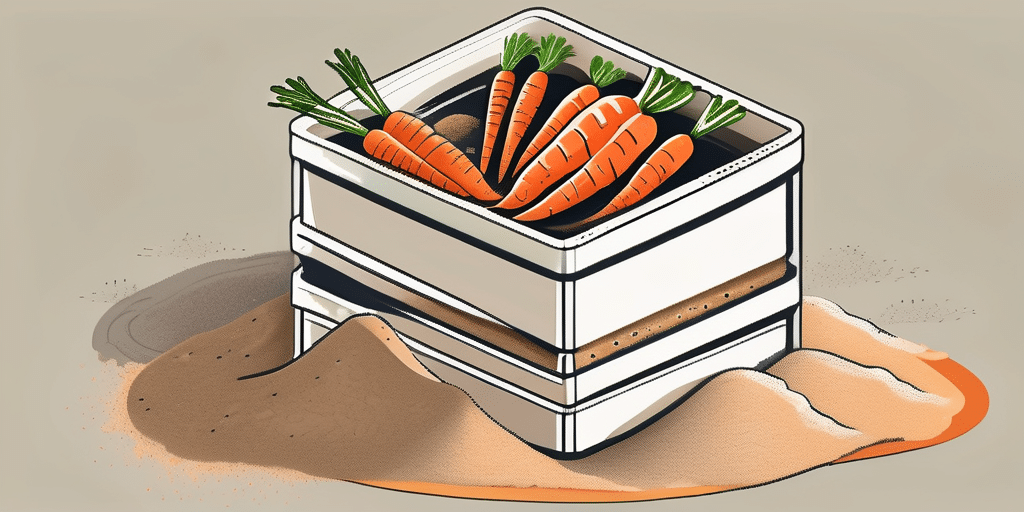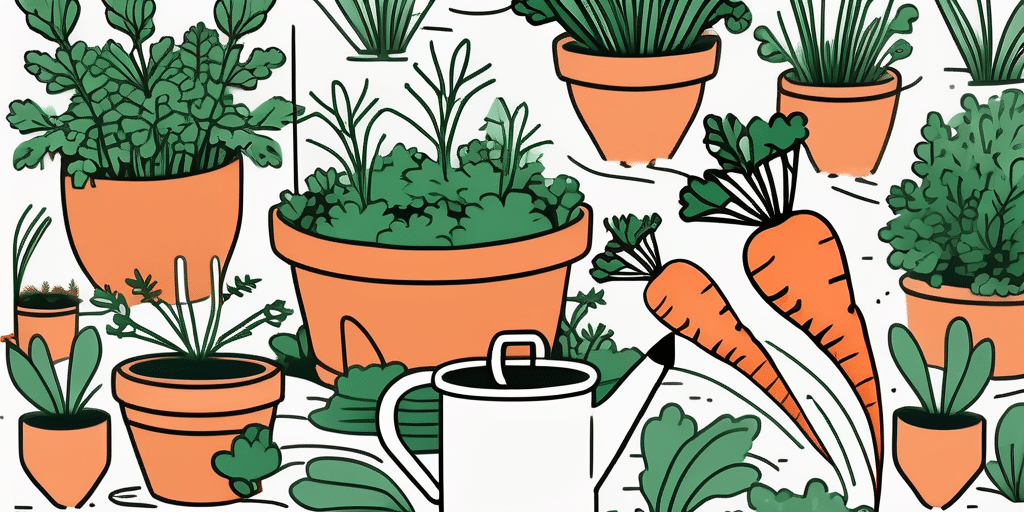Carrots are a popular vegetable in many home gardens, known for their versatility and nutritional value. However, like all plants, carrots can benefit from the right companions in the garden. Companion planting is a method of growing plants together for mutual benefit, often improving growth, reducing pests, and enhancing flavor. In this guide, we’ll explore the best carrot companion plants and how to use them effectively.
Understanding Companion Planting
Companion planting is a time-honored gardening technique that pairs plants together for their mutual benefit. This method can help deter pests, improve soil health, and even enhance the flavor of your vegetables. It’s a natural, organic way to boost your garden’s productivity and health.
According to the University of Florida IFAS Extension, companion planting can be an effective way to manage pests and diseases in the garden. Certain plants can repel harmful insects or attract beneficial ones, helping to keep your carrot crop healthy and thriving.
The Science Behind Companion Planting
Companion planting works on several principles. Some plants exude chemicals from their roots or aerial parts that can deter pests or attract beneficial insects. Others can provide a physical barrier or a hiding place for beneficial creatures. Some plants can even improve the soil by fixing nitrogen or adding organic matter.
For example, the University of California Statewide Integrated Pest Management Program notes that certain plants can attract insects that prey on common pests. By planting these beneficial plants next to your carrots, you can help keep pest populations in check.
Best Companion Plants for Carrots
When it comes to companion planting with carrots, there are several plants that can provide significant benefits. Here are some of the best companions for your carrot crop.
Tomatoes
Tomatoes are a great companion for carrots. According to the USDA, tomatoes can help carrots grow better and can improve their flavor. The tomato plants provide shade for the carrots, helping to keep them cool and moist. In return, the carrots can help break up the soil around the tomato plants, improving their root growth.
However, it’s important to note that tomatoes should be planted at least a few weeks before the carrots. This allows the tomato plants to grow large enough to provide shade for the carrots.
Chives
Chives are another excellent companion for carrots. They can help deter pests like carrot rust flies and aphids, which can be a major problem for carrot crops. The strong smell of chives can mask the scent of the carrots, making it harder for these pests to find them.
Chives are also easy to grow and require little maintenance, making them a great choice for beginner gardeners. Plus, they can add a delicious flavor to your meals when harvested.
Radishes
Radishes can also be beneficial when planted with carrots. They can help deter pests like wireworms and root maggots, which can damage carrot roots. Plus, radishes grow quickly and can be harvested before the carrots, allowing you to get two crops from the same space.
Radishes also have a strong flavor that can deter pests. And like chives, they are easy to grow and require little maintenance.
How to Implement Companion Planting with Carrots
Now that we’ve covered the best companion plants for carrots, let’s look at how to implement this in your garden. Here are some steps to follow:
- Plan your garden layout. Consider the needs of each plant, including sunlight, water, and soil conditions.
- Plant your tomatoes first, allowing them to grow before you plant your carrots.
- Plant your carrots next to your tomatoes, chives, and radishes. Make sure to space them properly to allow for growth.
- Monitor your garden regularly for pests and diseases. If you notice any problems, take action immediately to prevent further damage.
- Harvest your crops when they are ready. Remember that radishes can be harvested before carrots, so plan accordingly.
By following these steps, you can create a healthy, productive garden that maximizes the benefits of companion planting.
Conclusion
Companion planting is a powerful tool that can help improve your garden’s health and productivity. By choosing the right companions for your carrots, you can help deter pests, improve soil health, and even enhance the flavor of your vegetables. So why not give it a try? With a little planning and care, you can reap the benefits of companion planting in your own garden.
Join Our Gardening Community
Ready to transform your carrot patch into the Garden of Your Dreams? Subscribe for free to How to Grow Everything and get personalized gardening advice tailored to your specific location, grow zone, and experience level. Whether you’re a novice or a seasoned green thumb, our family is here to share the best gardening tips and special offers, ensuring your garden thrives. Join our community today and let us help you grow everything—100% free, no spam, just pure gardening gold!

